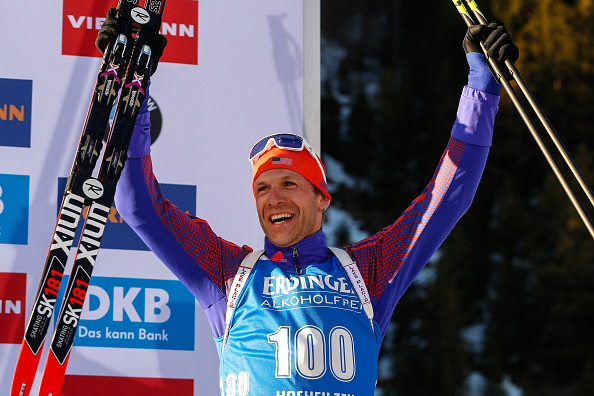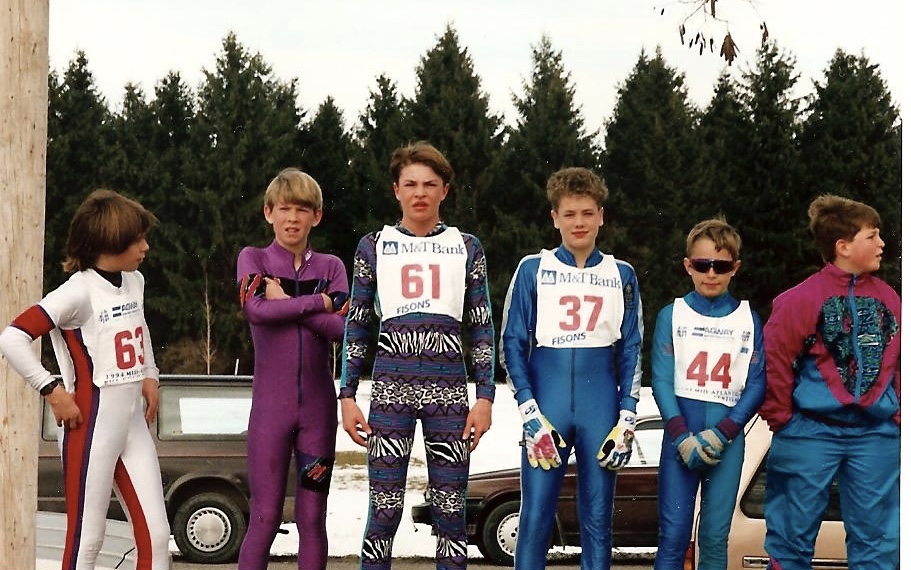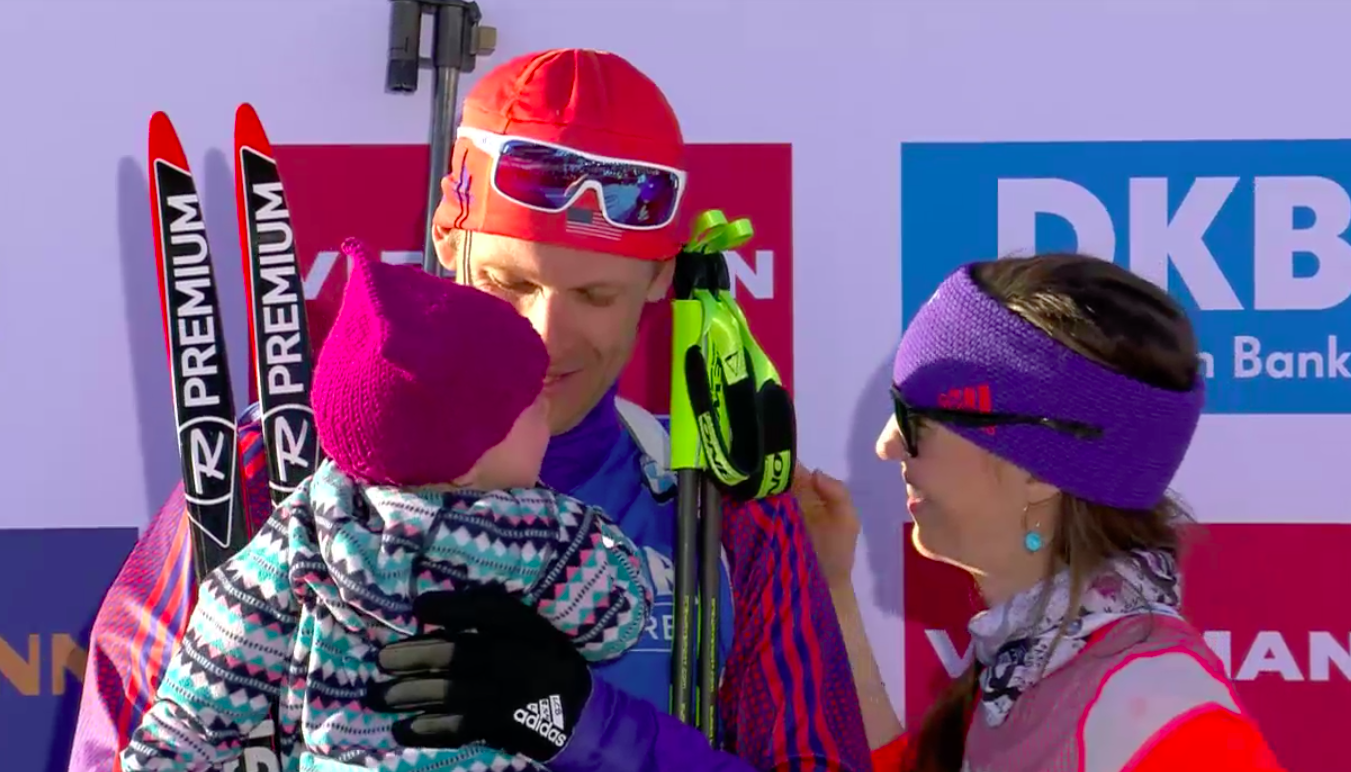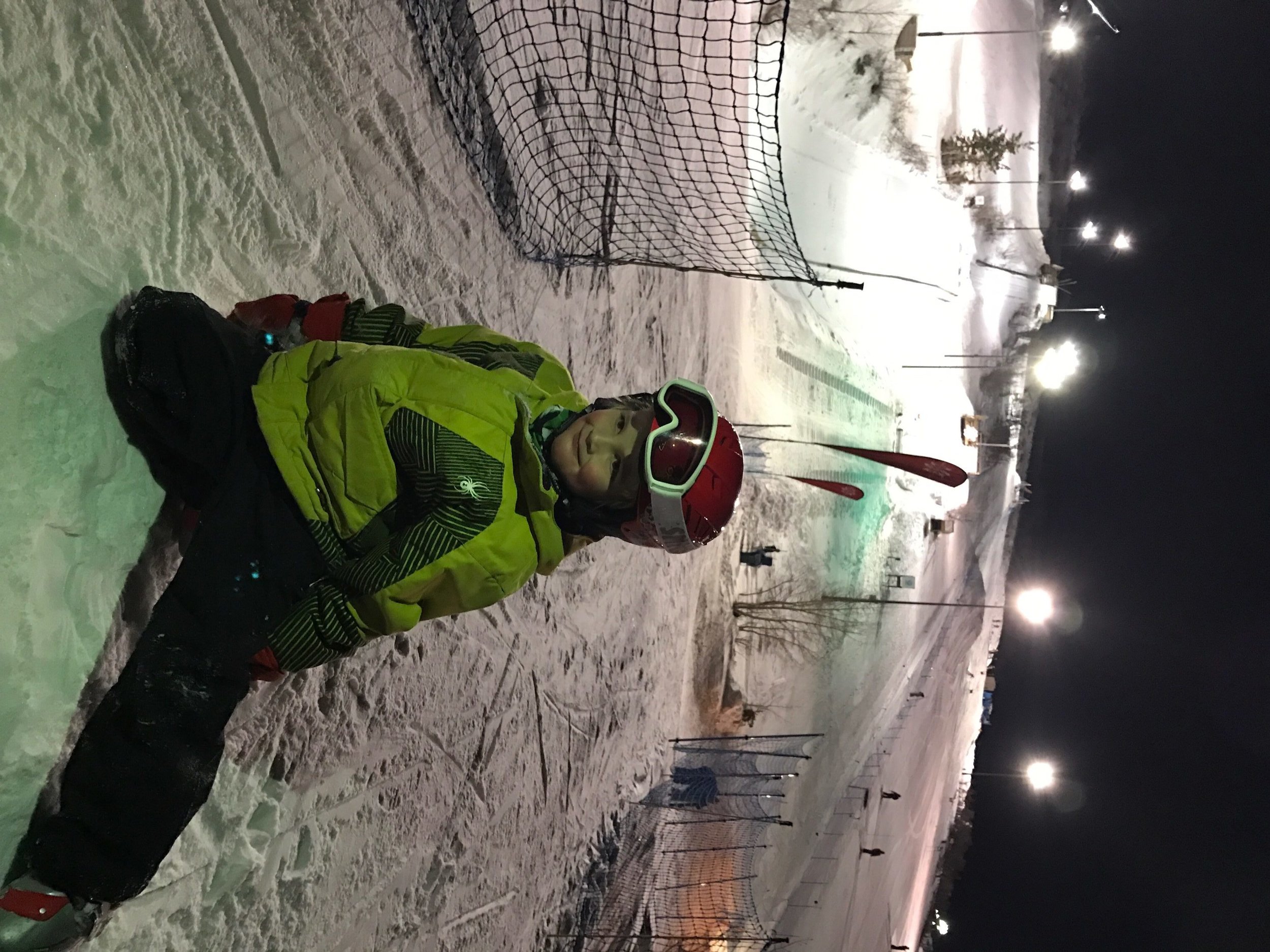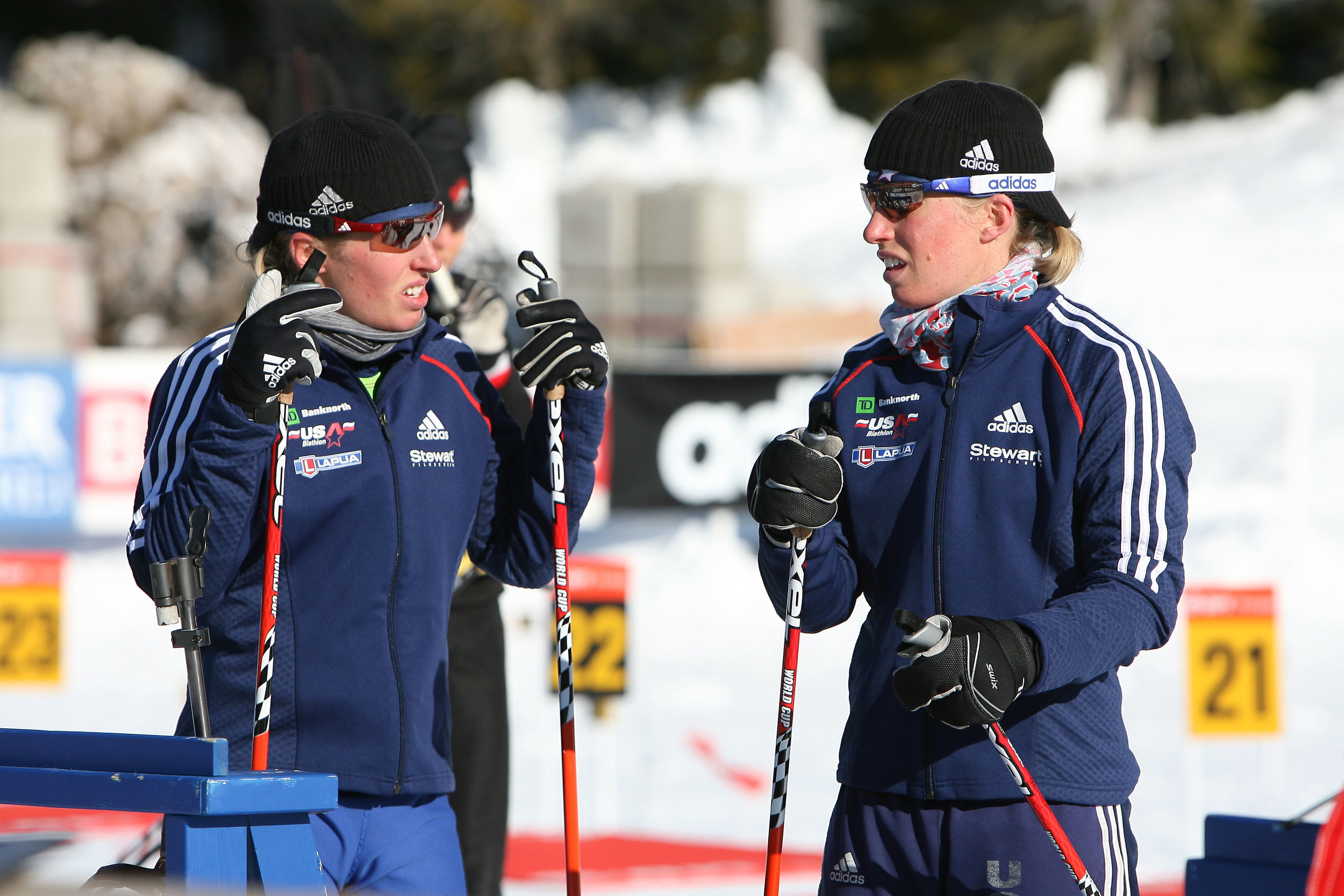Can we be honest with each other? For a great many people, what comes out of Washington, regardless of who is who there, is just noise. What matters is what, truly, matters: family and community.
Indeed, it is the day-to-day stuff of real life, the rituals, the joys and the heartbreaks, the ups and downs of the days that can seemingly take forever and the years that go by in a blink amid children and family and community that bind us all together: the crazy quilt, the rich tapestry that is the United States of America.
This is why Lowell Bailey’s victory Thursday in a 20-kilometer race at the biathlon world championships in Hochfilzen, Austria, is all the more special.
Bailey’s gold medal, in what in biathlon lingo is called the individual event, is the first — for emphasis, the first — biathlon gold for the United States at either the world championships (which date to 1958) or the Winter Games (1960, and see you next February in South Korea).
Bailey hit all 20 targets and, over the final four-kilometer loop, had to ski hard and fast to defeat Ondrej Moravec of the Czech Republic. The winning margin: 3.3 seconds. Martin Fourcade of France, in recent years perhaps the world’s best biathlete, took third.
What Lowell Bailey did Thursday is arguably the hardest thing to do in sports: to win when there is no evidence you can. When all you have is belief. And you, your family, your community, your team have had to sustain that belief — in this instance, on behalf of your country — for more than 20 years.
“It is a belief, a vision,” Max Cobb, the president and chief executive of U.S. Biathlon, said in a late Thursday phone call, “in the power of bringing the right people together and working as hard as you can to bring about something you really believe in and really want.
“All too often in life,” Cobb added, “we sell ourselves short by not daring to dream to do something great and trying to achieve something that seems unachievable — something that rationally seems unachievable.
“It is when you dare to do that great thing that great things happen. That is why today is so emotional.”
Lowell Bailey is 35 years old.
He has been at this biathlon thing a very, very long time. PyeongChang next year will be his fourth Olympics.
Bailey grew up around Lake Placid, New York. There are super-intense local rivalries — there is Saranac Lake, there is the farther-out hamlet of Paul Smiths, there is Lake Placid — but for the rest of us who are not locals there is, you know, Lake Placid, where 37 years ago this week they staged the Winter Games there. Eric Heiden raced and won five times. A pretty big deal hockey game went down between the Americans and Soviets.
That kind of thing, and to grow up in and around Lake Placid is to be part of that culture.
“It was such a thrill to see this,” Sue Cameron, who is literally Lowell Bailey’s next-door neighbor, said in an email.
“Everyone in Lake Placid is over the moon about his gold medal and so proud not only of Lowell but the entire U.S. biathlon team, athletes and coaches.”
Lowell Bailey grew up with a gang of kids that included, among others, Tim Burke and Billy Demong. And, as well, Haley Johnson (2010 Olympics), Annelies Cook (2014 Olympics) and Billy's younger sister, Katy.
"As young racers, all of them were obviously good and in some cases very good," said Kris Cheney-Seymour, 46, the group's first coach who now runs the state-owned nordic ski center at Mount Van Hoevenberg.
"They were by no means the Bad News Bears," he added, "but they also weren’t the prodigies. The dream was born. Probably they and their internal sport mechanisms bought into it first. Their parents were unconditional. And the community believed as well. Every step along the way was, in some ways celebrated, but also there was an inner belief that they could always do it."
Tim Burke, 35, is also a mainstay of the U.S. biathlon program. He has been to three Winter Games. At the 2013 world championships, he took second in this very same individual event.
At the 2010 Vancouver Olympics, Demong became the first American to win Olympic gold in a Nordic event, the 10km individual large hill. He then skied the final lap in a silver medal-winning relay.
Billy Demong and his wife, Katie, now live in Park City, Utah.
“It’s incredible,” he said in a phone call, “to look at the group we grew up with, in a small town, in a small area — and look at how much success came out of that group.”
He added a moment later, “I have always been a bigger believer in groups and culture. We had that when we were kids growing up. We showed up. We pushed each other.” And this: “Part of learning how to win back in the day and believing we could win was coming to grips with the fact that there was not something in the water in Norway that we didn’t have.”
He also said, recalling when his U.S. teammate Johnny Spillane won gold in the 7.5k sprint at the 2003 worlds, the first American to win a gold at the FIS Nordic worlds, that he — Demong — did not cry then. Nor did he — Demong — cry in 2010 in Vancouver.
On Thursday, Billy Demong, watching Lowell Bailey win via livestream on the computer, cried. In excitement. And joy.
He said he called Tim Burke’s mother — Billy, who is now 36 and the father of two young sons, could easily summon Mary Jean Burke’s landline in upstate New York from the memory bank — and “we chatted about how special it was, going back to all of our childhoods.”
He added, “This is what it’s all about.”
Lowell Bailey’s younger sister, Kendra Bailey Davis, 32, was home with her husband, Jeff, and their 6-month-old son, Milo. They were stuck to the computer, too.
“We were just tearing [up],” she said, “and the whole day has been a string of texts and phone calls and video links and social media and real media.
“I did get a chance to video chat with him,” meaning her brother, “after he got home from the medal ceremony and we just stared at each other in disbelief. It’s a pinch-me, when-will-I-wake-up kind of day.”
Lowell Bailey’s younger sister also said, “I know I keep saying it but I don’t have another word: it’s unreal. It’s a dream come true for him and for our family.”
When Lowell Bailey stepped onto the podium, there was a moment when his wife, Erika, and their 8-month-old daughter, Ophelia, joined him.
In Utah, Billy Demong got the screenshot, then immediately dispatched it across the wires to Europe, to Lowell with a message: “You’re gonna want this one.”
This season, Lowell, Erika and Ophelia Bailey have made the biathlon tour a family affair.
“Lowell has some unique qualities in that he can take on a lot of things and still focus on biathlon,” Erika Bailey said late Thursday. “This morning, before the race, he was getting ready to walk out to the race and changing Ophelia’s diaper back in the van. He was able to do that and not get stressed out.”
“For me,” Lowell Bailey said, “it has made all the difference. It is just so great to have Erika and Ophelia here. Biathlon is a brutal sport. You can be on top of the world one day and not the next. Knowing that my family is here, waking up in the morning next to them and seeing their smiling faces — that’s what is’s all about.”
This, too — the crowd cheering him on as the race drew to a close. He knew, everyone knew what was at stake.
Earlier in these 2017 worlds, Bailey had hit every shot in the sprint and finished fourth, just six seconds out of a medal. He missed once in the pursuit, finishing sixth.
Biathlon is incredibly, incredibly hard. You don’t have to understand the intricacies to draw this parallel:
Imagine you run a lap on the track at world-class speed. Say 60 seconds, maybe just under, for 400 meters. Breathing hard? Now go shoot two free throws. Now two more. And do that as quickly as you can.
After Bailey cleaned his final targets, here came this wall of noise — cheers from the stands for an American.
“It was surreal,” Bailey said.
“Until someone gets to see what this atmosphere is like, until you stand alongside the course with 30,000 people screaming, or you stand inside the stadium, you can’t describe how it’s possible in our world of NFL football fans, who doggedly support the home team, how it’s possible for an entire crowd dominated by Norwegians and Germans and definitely not Americans — that they can, in an instant, turn and throw all their support behind an American skier trying to win the first American world championships gold medal …
“Just even thinking back on it gives me goosebumps.”
He also said, “To have something like this happen when I am 35 years old — it’s an amazing thing, amazing for me to experience. I know that the only reason I have stayed in it this long is because I have enjoyed almost every minute of it from when I was 12 years old and picked up a rifle until now, and stepped on that podium.”
That is, really, what it’s really about.
How it, genuinely, works.
A group of kids, boys and girls, in Lake Placid, have big dreams. Some go on to be world-class athletes. Then the likes of Lowell Bailey, Tim Burke and Billy Demong win medals and they inspire young boys and girls now, wherever they might be, to try to be like them.
Just the way, way back when, when Billy made his first Olympic team, Lowell and Tim thought, hey, we can do that.
In Park City, Utah, on Wednesday, Liam Demong, who is 6, played hooky from kindergarten. Liam and Billy went skiing all day. They tore it up to the tune of about 14,000 vertical feet. For Liam, it was a super big day all around. He got to ride up on the chairlift by himself for the very first time, with some cool 10-year-old friends.
About 4:30 in the afternoon, father and son came in for a bit. Liam attacked a chicken pot pie. Then he went back out into the snow, for three hours of ski jumping, which he now says — dad is trying very hard not to be that kind of parent, you know — is his favorite sport.
“I love,” Billy Demong said, “that he loves it.
“I love that there’s a core group of friends he’s doing it with, including his next-door neighbor. It’s like watching the whole thing happen all over again.”


